Being able to plug in at a campsite and power your whole RV is a huge convenience. But sometimes, due to inclement weather or faulty wiring, things can go wrong, resulting in a power surge that causes lasting damage to your electronics (and RV)! This is where RV surge protectors come in. These handy devices work to protect your RV and the electronics inside it from damage due to changes in voltage.
Why Do You Need RV Surge Protectors?
An RV surge protector is a lot like a surge protector you would use inside your home. It goes between your electricity source and your devices and protects your products from spikes in voltage. These voltage spikes can damage sensitive electronics and, in a worst-case scenario, could even fry your RV’s entire electrical system.
In many cases, an RV “surge protector” is actually a full-on electrical management system or EMS. This means in addition to protecting from voltage spikes, they also protect from other potential hazards, such as drops in voltage and faulty wiring.
Are these issues all that common, though? Or can you simply try your luck and go without a surge protector for your RV?
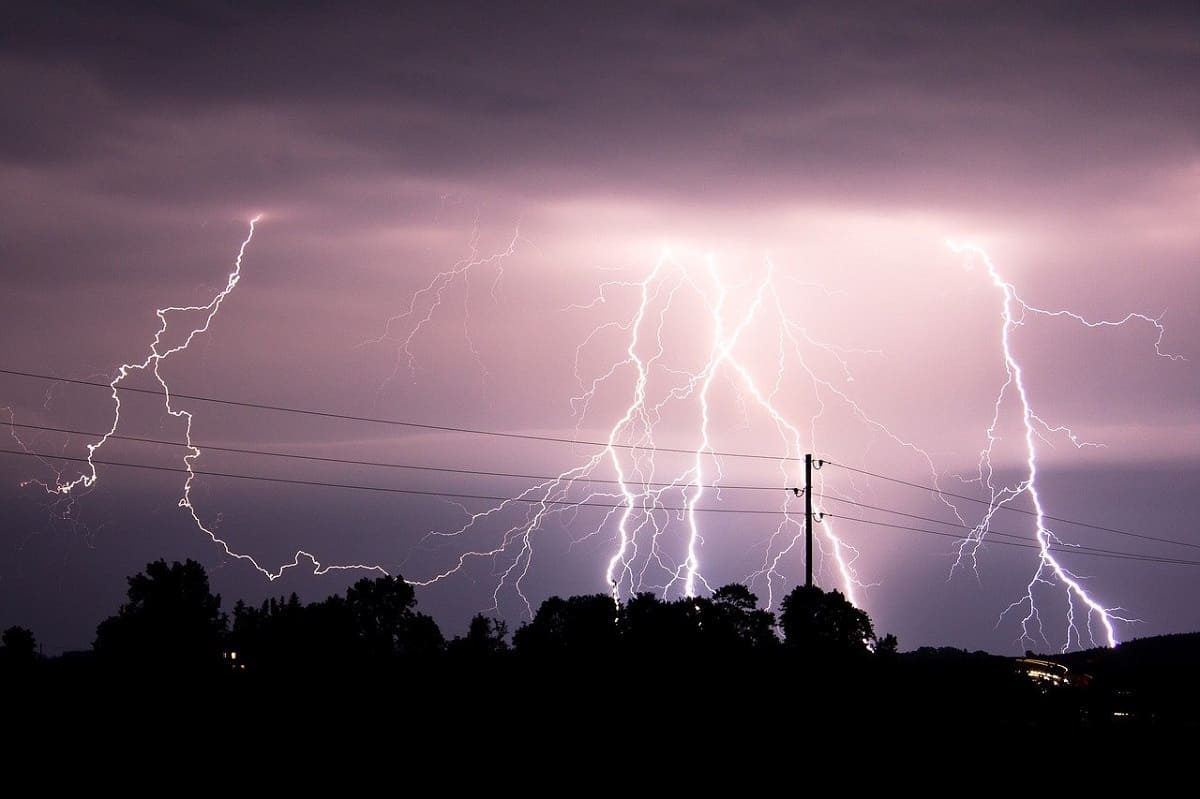
In fact, these issues are quite common. Every thunderstorm presents a risk of voltage spikes. And if you find yourself out west during fire season, there’s a good chance you’ll experience brownouts.
It’s an unfortunate reality that many campgrounds have old, poorly maintained power pedestals. Faulty wiring, old breakers, and other issues with power pedestals can present a major risk to your electronics.
Because of this, it’s a good idea for any RVer to use a surge protector. With a relatively small investment (most RV surge protectors cost $350 or less), you can protect yourself from potentially thousands of dollars in damages to your sensitive electronics and your RV’s electrical system.
What to Consider when Buying RV Surge Protectors
There are a few things to consider when shopping for RV surge protectors.
Surge Protector VS. Ems
As mentioned, an RV surge protector will only protect against increases in voltage – aka power surges. On the other hand, an RV EMS provides much more extensive protection from all manner of electrical hazards.
A standard surge protector will be more affordable and still provide protection against the most typical electrical hazard you’ll face. But for more comprehensive protection, a full-on RV EMS is worth the extra money.
30 Amp vS. 50 Amp
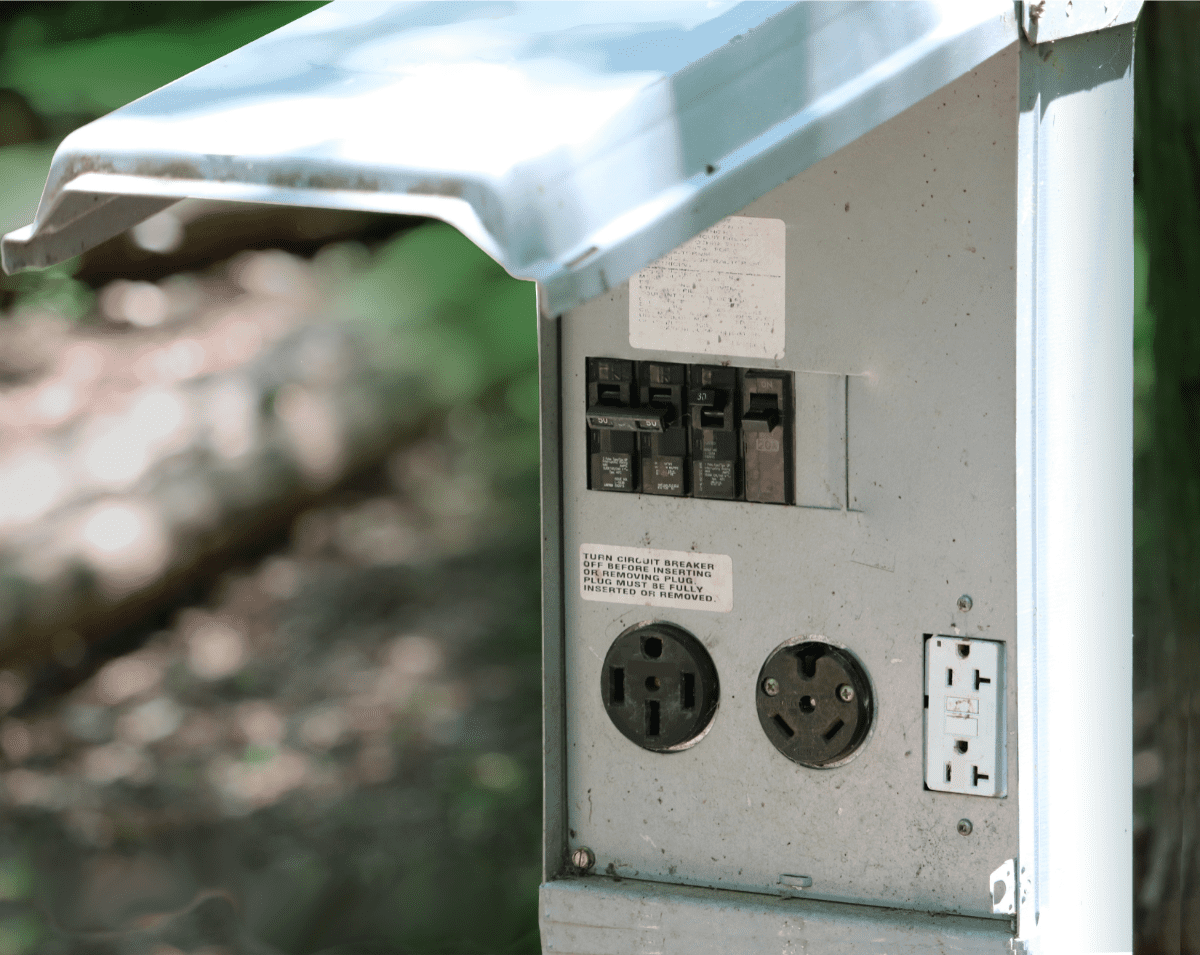
Your RV’s electrical system will be either a 30 amp or a 50 amp system. Your surge protector must match up to the amperage of your RV’s electrical system, both for electrical reasons and because the two systems use differently shaped plugs.
Generally speaking, smaller RVs have 30 amp systems, and larger RVs have 50 amp systems.
Portable VS Hardwired
RV surge protectors will be either portable or hardwired. Portable protectors are much like a surge protector you’d use at home: you plug it into the power pedestal, then plug your RV’s electrical system into the surge protector. When you head out, simply unplug it all and store it away.
Hardwired surge protectors are installed at the other end of the system, directly in your RV. A hardwired surge protector is more work to install, requiring you to strip and run electrical wires, among other somewhat difficult tasks. The advantage is that once installed, you won’t have to worry about theft, forgetting the surge protector, or anything else of the sort.
3 Best RV Surge Protector Brands
Now that we know all about surge protectors for RVs let’s look at the best brands to buy.
1. Power Watchdog
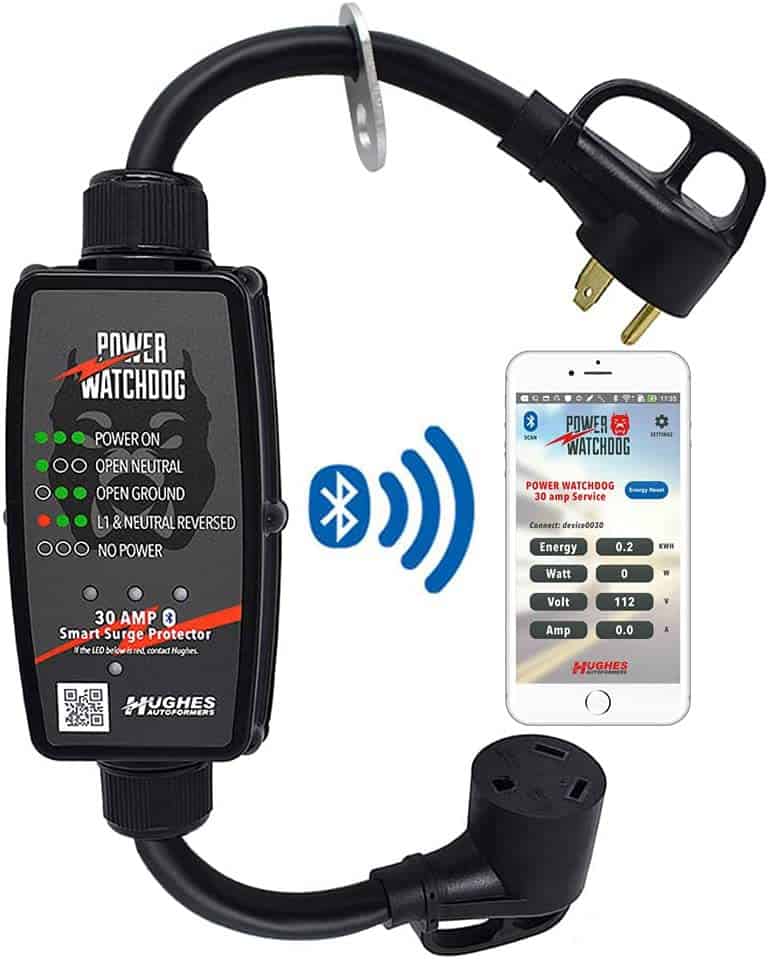
Power Watchdog is a line of RV surge protectors from Hughes Autoformers. They’re one of the biggest names in the game, with multiple awards won for their products. These high-quality, powerful surge protectors include Bluetooth technology to let you monitor power conditions from your phone.
These surge protectors are complete electrical management systems that protect from all manner of hazards. When the surge protector gets worn out, instead of replacing the entire surge protector, you only need to replace the much cheaper surge module inside.
Power Watchdog produces both portable surge protectors and hardwired options.
2. Progressive Industries
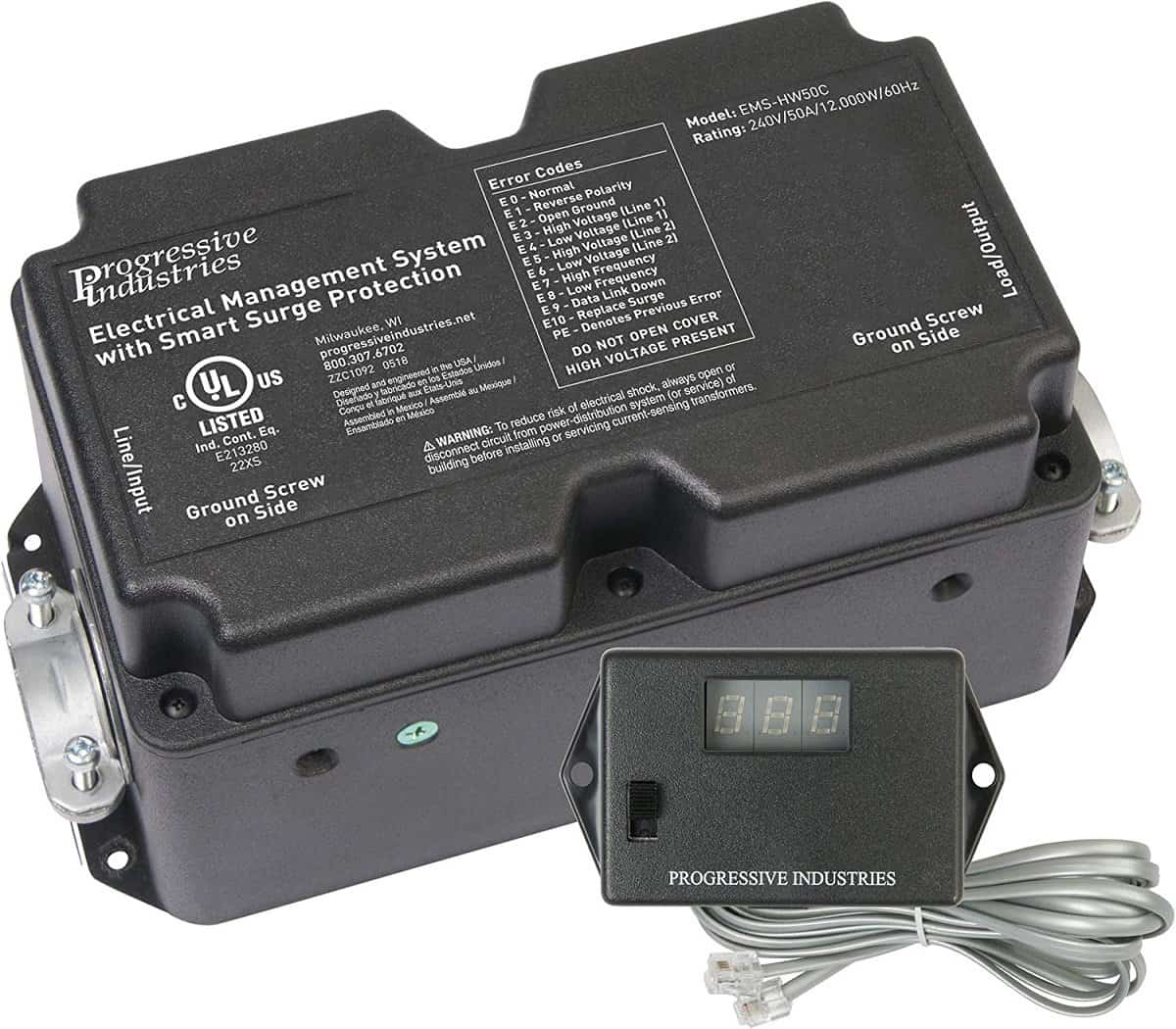
Another one of the biggest names in surge protectors for RVs is Progressive Industries. They produce industrial strength surge protectors that can protect from big surges. Their most powerful surge protector can withstand up to 88,000 max amps!
All Progressive Industries surge protectors are full RV EMS systems that protect from a wide range of issues. Progressive Industries surge protectors feature a simple screen, or an indicator LED to help you diagnose issues. Plus, Progressive Industries offers a lifetime warranty on its products.
Progressive Industries sells portable RV electrical management systems and hardwired versions for 30 and 50-amp systems.
3. Camco
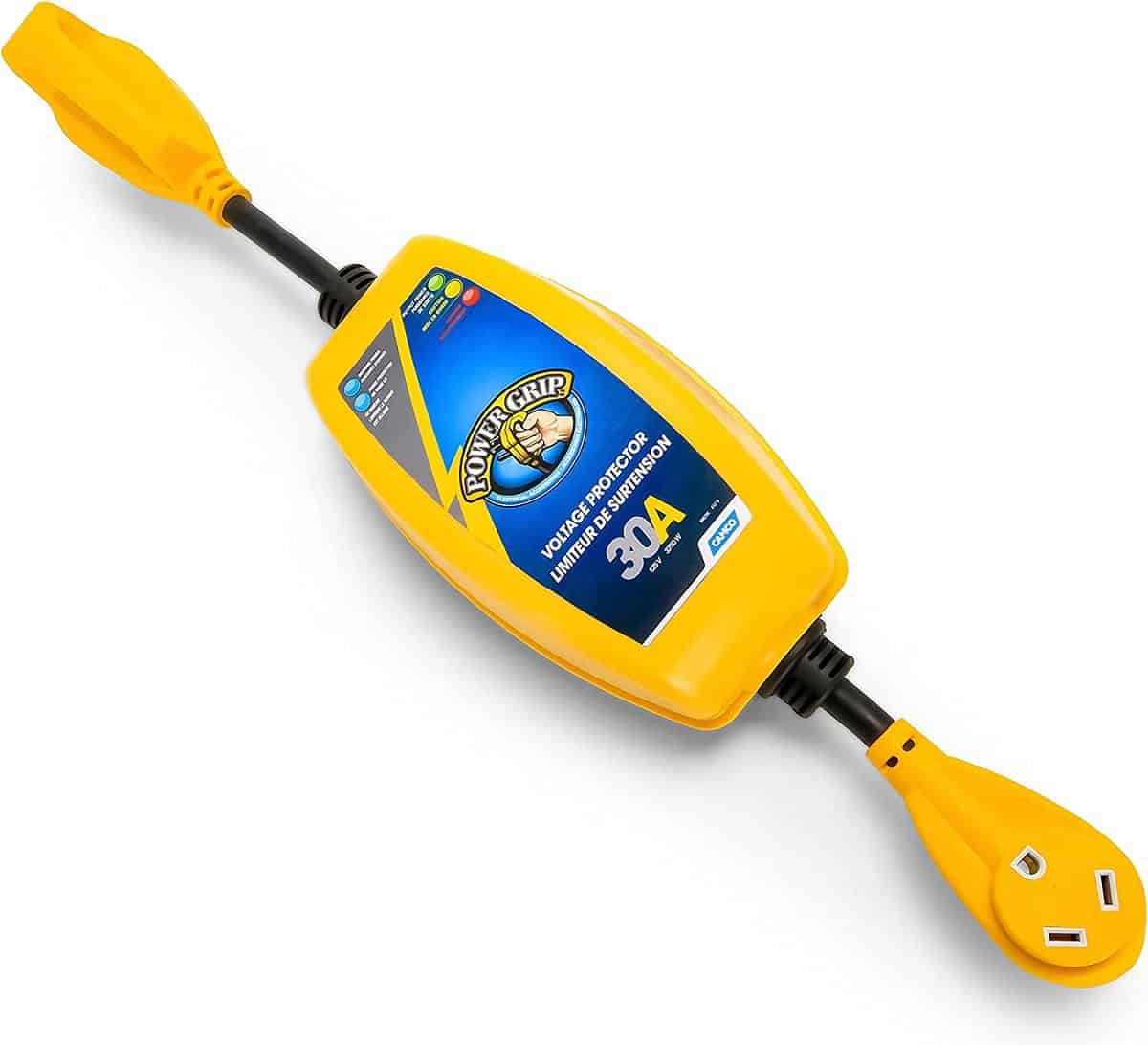
Camco is well known for making a wide variety of RV accessories that are affordable and high quality. If you’ve spent any time RVing, you’ve probably heard of Camco and may even own some of their products.
As a part of their line of RV accessories, Camco offers a portable surge protector. It has ergonomic handles so that you can plug and unplug it easily. A diagnostic LED on the device tells you if there are any issues with your power supply. In addition to the 30 amp version, there’s also a 50 amp version.
Protect Your Electronics with An RV Surge Protector
RV surge protectors keep your electronics safe from dangerous voltage surges. Whatever kind of surge protector you buy, they’re essential for any RVer. Once you have one, you can rest easy knowing that your electronics are safe, no matter where you’re plugged in.


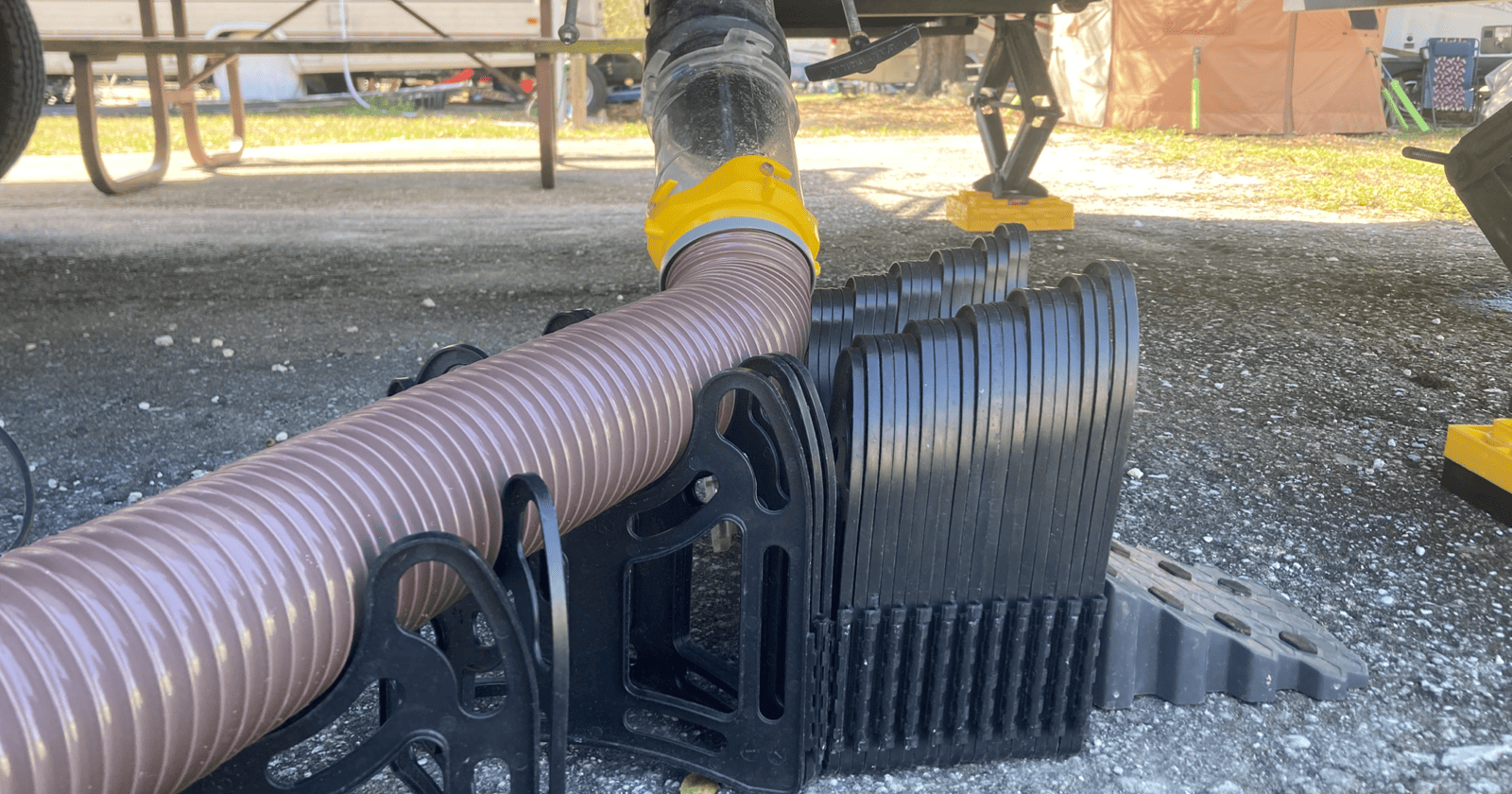


The five top-rated surge protectors seem to be only four.
Good catch. Fixed.
Thanks for being a Camper Smarts reader.
Surge-protectors work well , but not for electrical storms. Lighting is much to fast for a surge-protector your best bet is to unplug from the power source, until the storm passes.
I was using a surge protector in a park near B’ham, AL. We had a night of thunderstorms on the tail end of a hurricane and the surges it experienced used up all the joules. It still worked for over/under voltages and bad commons a bad ground, but not for extreme surges. I replaced it with a higher rated, joule wise, as soon as I could get to a CW store.
Seems a hard-wired surge protector will have the same type of joule depletion issue and need to be replaced when its joule capacity is depleted.
What for us with tents or tent trailers? We are only using 110v.
110 (120 for many years now) volts is the voltage. You probably have 15 or 20 amp system. There are many 15 amp surge supressor systems for electronics on the market that can be used indoors but not outdoors in the rain. Since most rv hookups have 30 amp plugs, get a 30 amp supressor and a 30 to 15 amp dogbone cable. This will protect your electronics.
When my van camper conversion is finished I will be self-contained as far as power goes. Solar, wind, generator, off the alternator, if I will not be able to prove any power needed/wanted, then I do not need that article.
We are a 50 amp but sometimes use an extension to plug into a 30 amp. What size surge protector do we need?
I would go with the size that matches your rig (50amp). You can always plug the surge protector into the 50 to 30-amp dogbone adaptor when you need to plug it into a 30A pedestal. The more intelligent EMS systems will know when only one leg of the 50amp is hot (which is what the adaptor does). However, if you find yourself plugging into 30A more often than not, having the SoftStartUP unit will help your rig fire up any heavy inductive loads like your AC/Heatpump on the limited amperage. At the moment the SoftStartUP only comes in a 30A version.
Thanks for being a Camper Smarts reader.
I’ve had both internal wired EMS and a portable version. Advantages of hard wired were as noted in the article. But on my 2nd trailer I went with the portable EMS (same brand). Reasons:
1. About 1/2 the cost
2. can use with different trailers
3. if it gets destroyed it is easily replaced. The lifetime warranty was honored by CW in another state when my portable unity was fried due to a faulty pedestal in California.
4. If it gets fried, as mine did, it’s much better to have it outside your living space!
5. A good cable lock deters most thefts – the portables have a steel loop to attache cable locks. Master Lock has a nice lock (keyed or combination. Lock it to the pedestal including your power cord handle and you can’t forget it!